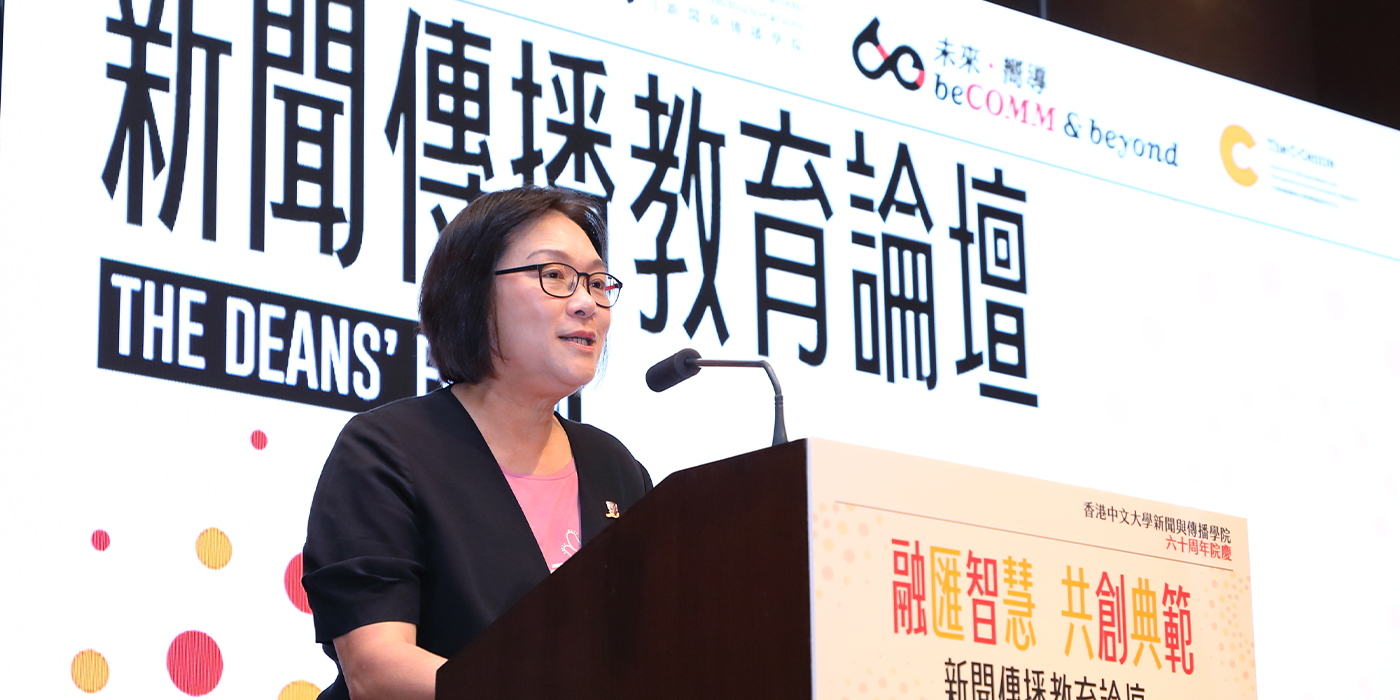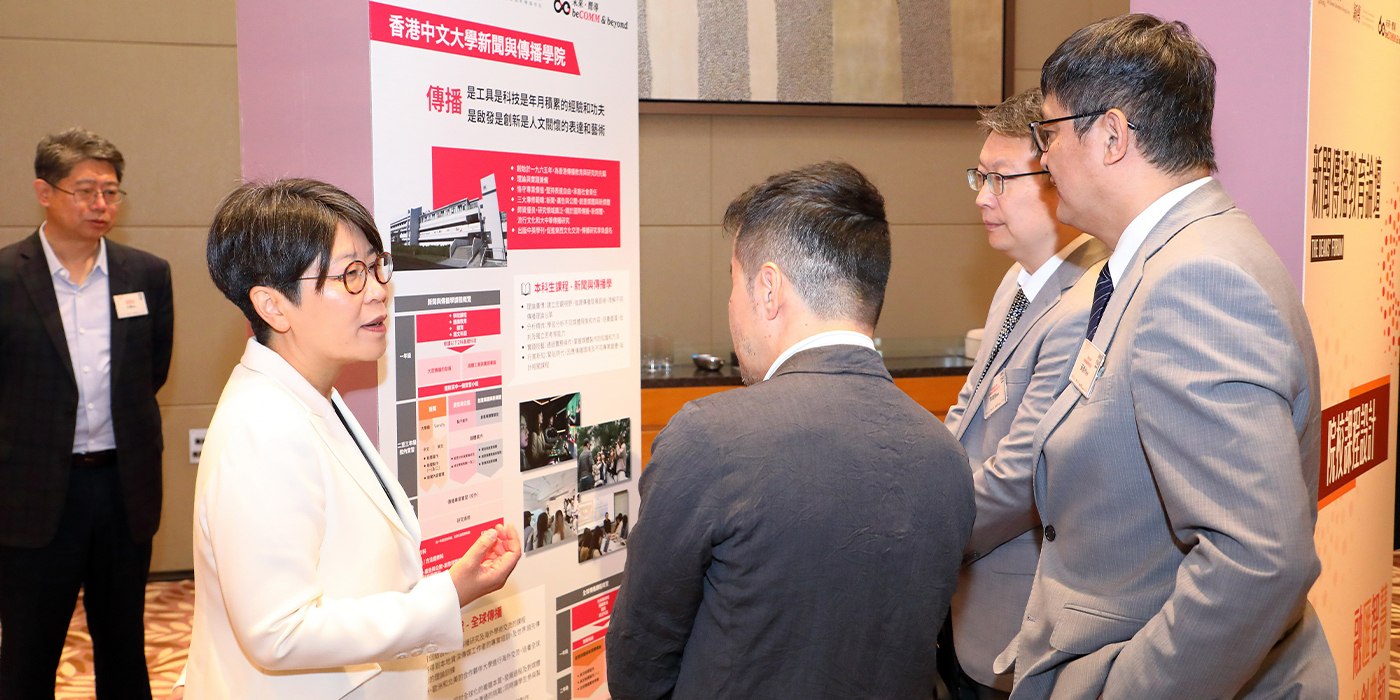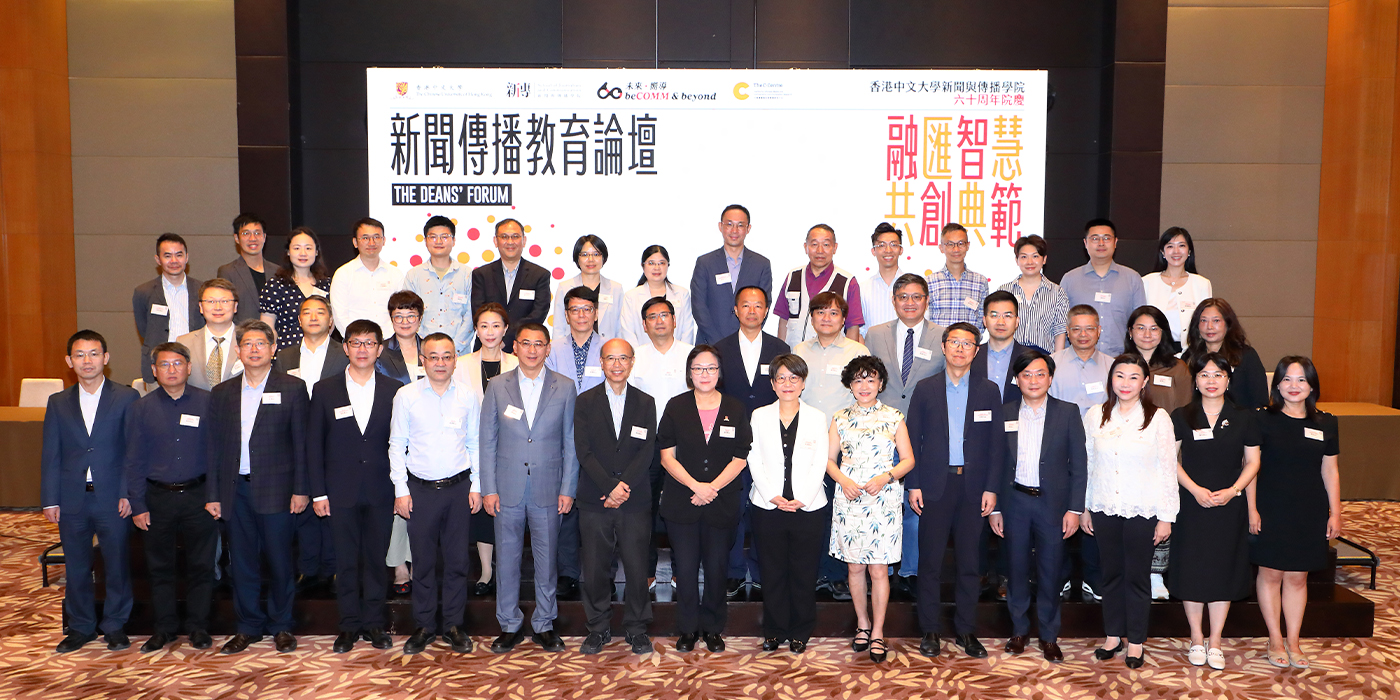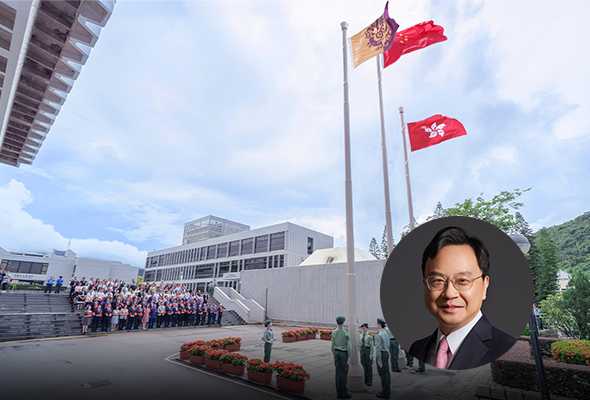Uniting experts from five regions to explore the future of journalism education
16 July 2025
The School of Journalism and Communication hosted a Deans’ Forum to mark its 60th anniversary last week, gathering 35 scholars from 26 institutions in mainland China, Hong Kong, Taiwan, Macau and Singapore to foster dialogues on the transformation of media education amid rapid technological advances.
The Deans’ Forum, the first of its kind hosted by the School, was held over two days from July 4 to 5 at the Hyatt Regency Sha Tin. Officiating the event, Professor Isabella Poon Wai-yin, CUHK’s Provost, congratulated the School ranking 12th in the QS World University Rankings by Subject 2025. She recounted its modest beginning 60 years ago with only two teachers and six students and noted that the school had over the years grown into a strong institution currently educating over 400 undergraduates and some 300 postgraduate students. The School played a crucial role in nurturing media professionals and researchers for Hong Kong, the country and the international community, she noted.

Titled “Excellence in Journalism and Communication Education: Showcasing Works and Sharing Best Practices Across Greater China and Beyond”, the forum addressed the challenges and opportunities brought by emerging technologies, including artificial intelligence and new media. Panelists emphasised that, despite the rapid growth of social media, citizen journalism and AI-generated information, the role of traditional journalism in verifying and providing reliable information remained vital. They highlighted the importance of teaching students the commitment to truth and accuracy and equipping them with critical thinking and storytelling skills.
The scholars called for a curriculum overhaul noting that equipping students with traditional skills would no longer be adequate. They recommended incorporating AI into current modules, introducing specialised technology courses and organising thematic workshops or seminars. As traditional media outlets like newspapers, television and radio no longer served as main career options for graduates, scholars emphasised the importance of reassessing core courses and increasing the variety of internship opportunities to better prepare students for demands in emerging markets.
Academic assessment was another focus of the discussions. The experts emphasised the need to modernise assessment methods, taking into account students’ growing use of AI tools and ensuring educators could effectively evaluate students’ abilities including understanding academic literature, critical thinking and independent reasoning.
Participants also emphasised the need to assist educators—many of whom were trained for traditional media operations—in adapting to technological changes. They also advocated for active recruitment of scholars with interdisciplinary expertise and practical understanding of local media industries to introduce fresh perspectives and up-to-date knowledge to the classroom.

Reflecting on the School’s 60-year journey, Professor Donna Chu Shun-chi, Director of the School of Journalism and Communication, said that the School had trained over 9,000 students since it was founded in 1965. She saw the cross-regional forum as an important platform for promoting dialogue and collaboration across the region, aiming to enhance media education and research amid fast-paced technological changes.
Faced with both challenges and opportunities brought by AI, Professor Poon said CUHK was dedicated to regularly reviewing and enhancing its curriculum. She stated that the University was committed to nurturing new generations of media professionals who were skilled at navigating the ever-changing media landscape, grounded in critical thinking, truth and sound ethical judgment. She hoped that CUHK, together with its academic partners worldwide, would continue to advance the fields of journalism and communication.
Acted both as a platform for intellectual discussion and a celebration of the School’s 60-year dedication, delegates examined regional differences in media education, discussed future trends and showcased outstanding student work, all aimed at shaping the path forward for the coming decades.
The series of academic events for the School’s 60th anniversary also includes the international conference on Sustainability and Sustainable Media held in January and the upcoming postgraduate conference in July titled “BeCOMM & Beyond: Boundaries and Imagination of Next-Generation Communication”.




















